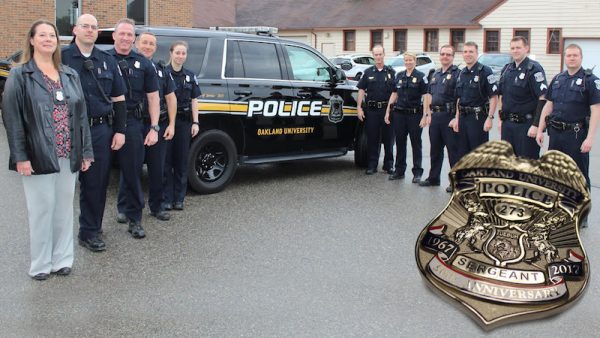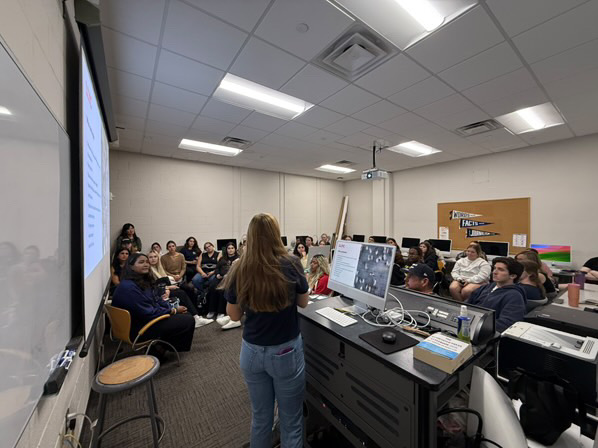OUPD offers active shooter defense workshop for faculty
With the recent school shootings occurring across the country, Oakland University is taking steps to ensure faculty are ready should this ever occur on campus.
The Center for Excellence in Teaching and Learning (CETL) is partnering with the Oakland University Police Department to present the Active Shooter on Campus Workshop to faculty on Wednesday, March 7 in Elliott Hall.
The class, which is already full for this session, is the fourth in a series of workshops that focuses on addressing behavioral concerns and active shooter scenarios.
“Research shows that the more prepared you are, the better your chances are for survival,” said CETL Director Judith Ableser.
Attendees will gather for a presentation from OUPD Chief Mark Gordon, followed by a short video on how to handle such a situation and a group discussion.
“The video that used to be shown was originally made after the Virginia Tech shooting and was shown all across the nation,” Ableser said. “The problem was that this was not specific to the context of OU’s campus. Our university now has a building surrounded by glass, and the fact that our locks were on the outside, not the inside, conflicted with the video’s instructions, so we had to look on how to address that. They just made a new video that will be shown for the first time at the session that was made with OU specifically in mind.”
The workshop offers three main options in an active shooter scenario—get out, hide out or take out.
“Get out” encourages staff and students to flee to a spot of refuge away from the present danger. “Hide out” consists of barricading the doors and keeping quiet so that the shooter doesn’t see or hear anyone. “Take out” is the last resort and should be taken against a shooter if they locate where people are hiding. OUPD encourages students and staff to fight in order to fluster the shooter, even if it’s just throwing something like books at them.
“Often brand-new faculty tend to think that they’re going to show up and just teach their content but they realize quickly that they will have other problems as well,” Abseler said. “Students will start acting inappropriately in classrooms or end up needing major emotional support. Many faculty have a Ph.D. in their discipline they teach, but they may lack the skills to deal with these kind of behavioral problems. Studies also show that students cannot perform well in school if they don’t feel physically or emotionally safe.”
OUPD has partnered with other surrounding city police departments in order to train for this type of attack. Their main priority is to enter the premise, track down the shooter and capture him or her. They are then supposed to offer aid to victims and the paramedics tending to the wounded.
“Our number one way of communicating with the campus is through the text alerts that go straight to cell phones,” Gordon said. “With an active shooter situation, we’d send out a series of emails as well as use the blue lights’ loud speakers to warn those on campus. Other universities only have 35 percent participation with text warnings. We’re fortunate to have 60 percent participation. But it’s important for all students and faculty to be a part of this system in case of a serious threat.”







